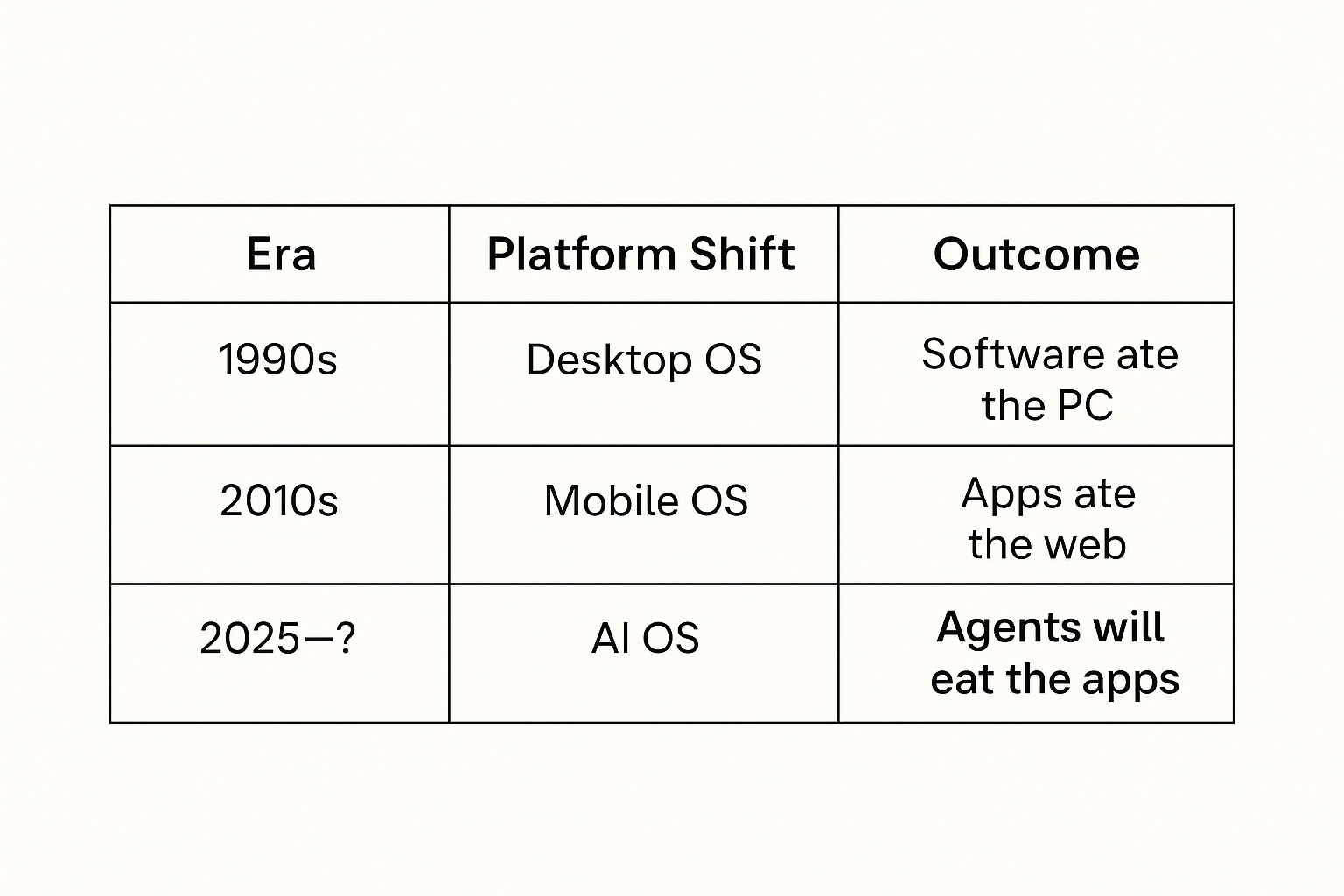The AI OS Race: The Next Great Platform Shift
I’ve been watching this space for months now, and it’s getting hard to ignore — we’re witnessing the start of a new platform war.
Only this time, it’s not about the apps we download. It’s about the intelligence that runs beneath everything we touch.
We’re entering the AI OS era, and it’s not just hype. It’s the logical next layer of computing.
The Money Always Tells the Story
Whenever capital starts moving in a pattern, I pay attention.
And lately, that pattern points straight to one thing: AI-native operating systems.
Nothing raised $200M to build its own OS, “Essential”, where you can generate apps just by describing them. It’s a bold move: goodbye Android, hello intelligent layer.
Microsoft just restructured its Windows team to make the OS agentic, literally baking reasoning into the system.
Humain launched its Horizon Pro laptop with “One OS,” designed to anticipate your needs instead of waiting for input.
And then there’s Rabbit OS, small but scrappy, experimenting with a conversational interface that’s closer to talking with your system than tapping through it.
If you zoom out, this feels a lot like the time when everyone thought apps were the product. But this time, the OS itself is the product.
What’s Actually Going On Here
Every tech cycle has that “holy moment” when something obvious in hindsight starts to click. For AI, that moment is happening now.
The point? Whoever owns this new layer, the orchestration of agents, context, and intent, will own the next decade of interaction.
This isn’t about adding an AI assistant on top of your OS. It’s about rebuilding the OS around the assistant.
The Frontier Is Weird, and That’s Why It’s Interesting
The big names make headlines, but the real innovation is bubbling under the surface. There are a few startups I can’t stop thinking about:
Burnt: building an agentic OS for food supply chains. Not sexy, but incredibly smart. They’re turning slow, manual distribution systems into autonomous workflows.
Warmwind OS: trying to build an AI OS from scratch. No Android base, no hand-me-down kernel, just pure “intelligence-first” architecture. Ambitious and kind of insane (which I love).
SpoonOS: merging AI OS and Web3, where agents can execute tasks on decentralized networks. Think blockchain meets cognition.
AIOS (AgiResearch): open source and raw, but quietly important: they’re embedding LLMs directly into OS primitives. If developers rally around it, it could become the “Linux of agentic systems.”
None of these are mainstream yet, and that’s exactly why they’re exciting. In every platform transition, the outliers look weird before they look obvious.
What’s Next, and Where I’d Bet
Here’s where I see the puck moving:
Hardware and AI are merging again: Owning the silicon + OS + intelligence layer is back in vogue. Think Apple in 2007 — but this time, the “chip” is the model.
Agent Stores will replace App Stores: Instead of downloading tools, we’ll describe outcomes — and the OS will assemble the agents to deliver them. The infrastructure around this will be massive.
Emerging markets will lead in efficient AI OS design: Lighter, localized systems that blend cloud and edge computing will dominate places like South Asia. This is where new entrants can win.
M&A is coming: By 2026, expect Big Tech to start acquiring the early agentic OS pioneers just like they did with mobile app ecosystems in the 2010s.
My Take
We’re past the “toy” phase of AI. What’s happening now is foundational, a rewrite of how humans interact with machines.
The AI OS isn’t just another product wave. It’s a paradigm shift, from apps to agents, from clicks to intent, from usage to orchestration.
And if history’s any guide, the people who figure out how to invest early in this layer, before it’s fully defined, will be the ones we’ll still be talking about in ten years.
Because the next trillion-dollar company won’t just build an AI model. It’ll build the mind beneath the screen.


